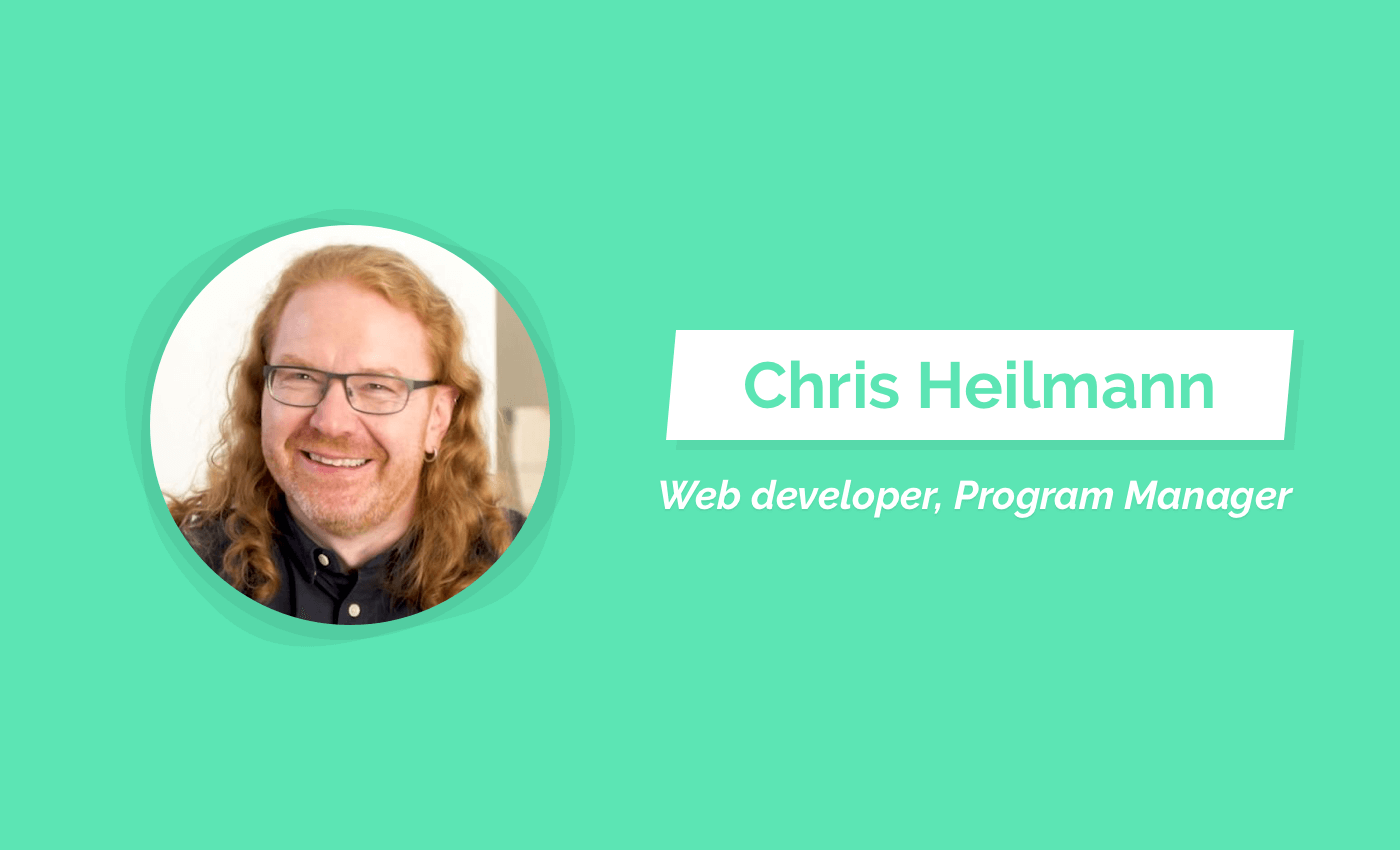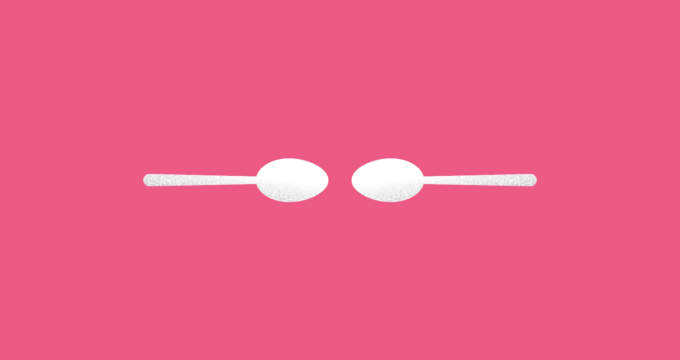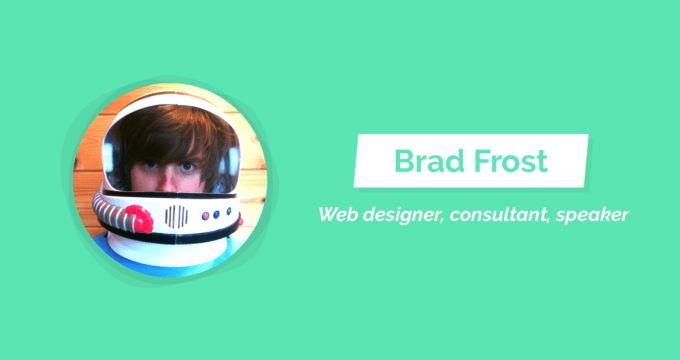Working Better: Interview with web developer Chris Heilmann
Working Better
The series aims to show how people from different fields work, how they balance life and work and how they take care of their wellbeing.
Can you tell us a little bit about yourself, what you do, your background, and how you got to where you are today?
I’m Chris, I am a Program Manager and I worked as a professional web developer since 1997. I currently work for Microsoft, where I look after the developer tools of the Edge browser. My career started in radio, where I learned a lot about terse writing and I always used computers a s hobby, mostly doing things in the demo scene. When the Internet came about I saw it as an opportunity to expand the medium I work in from local to world-wide and 24/7. I quit my job, taught myself HTML and got lucky being found by a headhunting agency that needed someone to build the intranet for BMW.
With that on my CV I applied for a few agencies, worked on bank sites, in enterprise CMS and then for eToys, then Amazon for online toy sales. This brought me to the UK, where I worked on local government sites, McDonalds and some other big sites. I then joined Yahoo where I started advocating the idea of developer evangelism. I wrote a handbook for this which got a lot of use in and outside the company. I also wrote a few JavaScript books and started my blog in 2005. I left Yahoo when the UK offices got closed and joined Mozilla working on the Firefox browser and now defunct Firefox OS. When Microsoft offered me to join them to get rid of Internet Explorer, this was a dream come true as a web developer.
In essence, my career was being at the right place and time and flexible enough to move and travel. I don’t have a university degree, but made up with enthusiasm and a lot of effort.
On a typical week, where do you usually work from?
I have worked from home for 18 years now. Most of the time I start at home and then go to a cafe to get some inspiration from people around me. I can concentrate really well when I am on my laptop. My first book was written on the underground in London as I lived at the terminal station of one line and worked on the other, meaning I had one hour each way with nothing to do. During Covid lockdown I started investing in a better local setup, with a secondary monitor to my laptop and a proper mic and camera for video shoots. But most of my work still happens on a laptop. I love the fact that the internet and working online empowers us to do this. There is no sense in only calling work work when you spent an hour commuting and arrived in the office.
What are the things you do to help you start the day in the best possible way?
Breakfast is without any computers or mobile devices. Get a coffee, sit on the balcony, get started planning your day instead of reacting to incoming requests. I also make sure that I do change for work, even if it is in the same room or flat. Putting on some work clothes gets me into work mode.
Can you take us through a typical workday?
I start the day following up requests from the night. My team is 9 hours behind me, and I ask them to give me requests with all the information I need so I can react on the day. I also check outside email and feedback we got on the browser overnight. This is normally around 400-500 messages to work through, but most can be discarded without any need to answer. Sometimes there are early in the day meetings with teams in India or China, but not often. I then read my own news feeds and disseminate some of that on social media and with my teams. I prepare my materials, work on specification, slide decks or videos and take a longer lunch break. I try to meet my partner for lunch or go out. My meetings start around four in the afternoon and the last is normally around 9 in the evening. This is the time I use to sync with my team, give out work orders and discuss next steps in development with the team.
How do you take care of your wellbeing while at work?
It is imperative to have a separation of work and being at home. Hence meals are without computers or mobile phones and I flat out don’t attend meetings that have no agenda or plan, especially those late in the day.
What are the things you do that help you when you’re stuck, feel uninspired or need some motivation?
I do look at other media. I am a big film buff, I read a lot and I love going to concerts. Another big thing is physical movement. I have no car, and cycle everywhere, which is great to clear your head. Going to the gym also is a lot of “mulling over” for me as physical movement is automated. I also try to keep my finger on the pulse what is happening in the market and what competitors are up to, which is always a good incentive to come up with other or better solutions.
What do your typical after-work hours look like?
Movies mostly and going to dinner or the pub with my partner. We live near a lake here in Berlin and it is lovely to do some late night walks around there.
What do you do to maintain a healthy work-life balance?
Have a clear separation of work and living. I make sure that weekends are without any computers or messages. I am simply not available, as there is no point to it. Another rule is to never ship on a Friday as this only spells trouble you can’t fix until Monday.
In general, over the course of the year, what else do you do to take care of your wellbeing?
Sports, eating well and taking holidays. It feels like you’re missing a lot and there will be a lot to catch up on when you’ve been out on vacation, but most of the time this isn’t as daunting as it seems. Having social connections is also important, I love going to the theatre and concerts and hang out with friends and family. It is tougher when your work day is shifted by four hours, but you can make it work.
Can you share any personal learnings when it comes to your wellbeing and productivity?
My biggest tip is to not immediately send things back to your team once you wrote them, Go do something else in between and come back to do another edit before you send it to ensure that you haven’t forgotten anything. When you work remote and in another time zone nothing is more frustrating than having forgotten an important piece of information and losing a whole day because of it. I also make sure that when I request information from people I do so in a short, precise and task-list type manner. That way there is no confusion as to what I expect from people. It is also important to go on calls and not only communicate in text. Often a 5 minute call can replace 20 emails back and forth.
In general, what had the biggest impact on your wellbeing?
Working out and doing physical things at fixed times of the day. Having a day structure to start with is also a great way to stay happy as you know what to do when and not feeling the dread that you’ve forgotten something.
Which advice would you give to someone in your field when it comes to wellbeing and productivity?
Be organised and make sure you carve out time to play with things you don’t know yet. As a programmer it is important to sometimes just build something senseless and badly written just to feel the joy of creating something quick without the overhead of deadlines, planning and key results.
What is your favorite moment of the day?
Going out after the first round of looking if there is a fire I need to deal with. I love going for a coffee knowing that I can just relax and plan what’s next without writing it down immediately.
What are your interests, hobbies or side projects you love to spend your time on?
Movies. I love watching making of and behind the scenes and discussing upcoming and past masterpieces with other movie fans. And I do a lot of retro computing, painting things for old Commodore 64 machines. Creating a graphic pixel by pixel in a very limited environment and make it look great feels like a puzzle and a mandala at the same time.
Any favorite books or podcasts you would recommend?
I really enjoyed “Notes on a nervous planet” my Matt Haig which is an eye opener when it comes to your usage of social media. I love short, educational video channels like “Kurzgesagt” and I think I’ve read the Hitchhiker’s Guide to the Galaxy about 20 times and still don’t get enough of it.
Where can someone find or follow you?
I am on Twitter as codepo8, my blog is christianheilmann.com and I am on LinkedIn, but not very often.
A big thank you to Chris for this interview!



